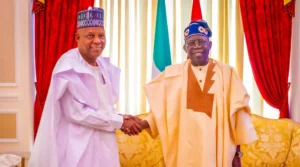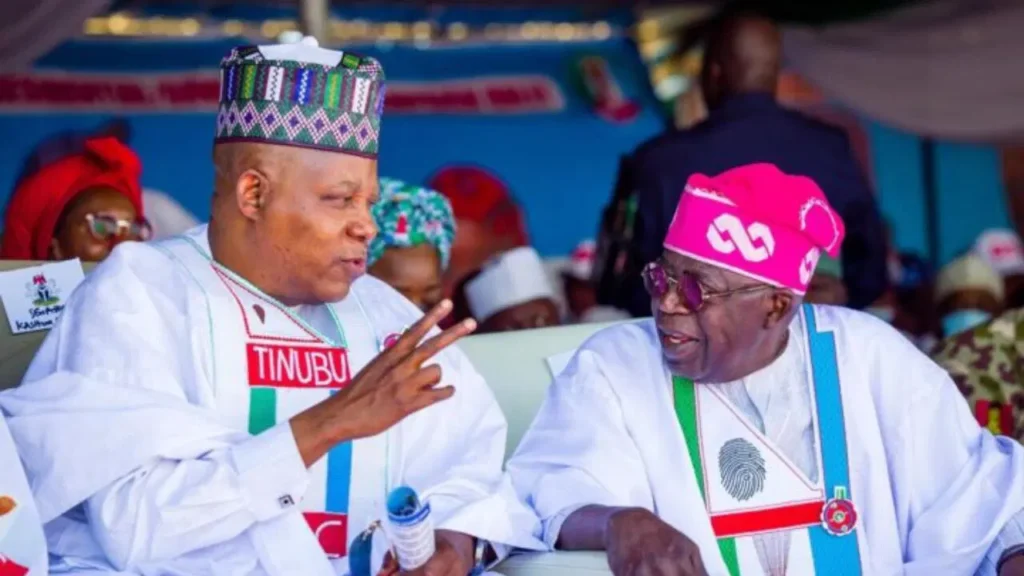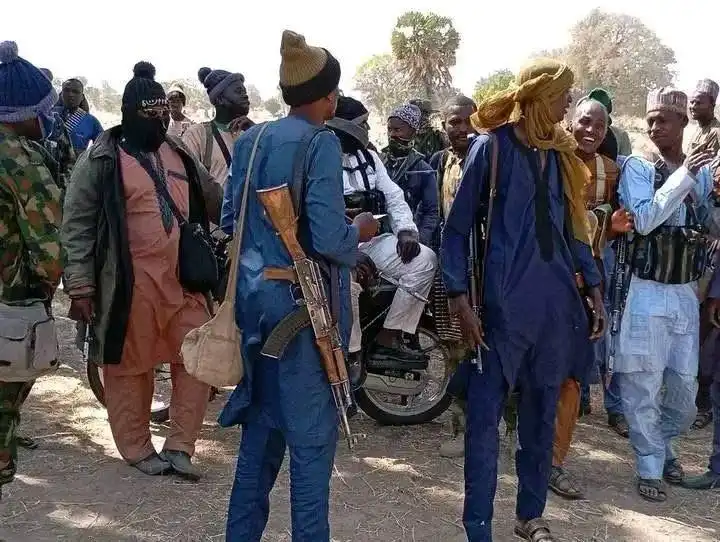Bola Ahmed Tinubu, the presidential candidate of the All Progressives Congress (APC), officially named former Borno State Governor, Senator Kashim Shettima, as his running mate for the 2023 general elections. The announcement, made in Daura, Katsina State—where Tinubu had traveled to consult with President Muhammadu Buhari—quickly ignited a national debate due to both men being Muslims, thereby establishing a rare Muslim-Muslim ticket in Nigeria’s political history.
The decision sparked mixed reactions across the country, particularly among religious and political leaders who raised concerns about inclusivity and the implications of religious representation in a multi-faith nation like Nigeria. For many, the ticket revived memories of the 1993 presidential election where a similar pairing—MKO Abiola and Babagana Kingibe, both Muslims—ran under the now-defunct Social Democratic Party (SDP). While that election remains widely regarded as one of Nigeria’s freest and fairest, it also ended in a controversial annulment by the military regime.
Why Shettima? Tinubu Defends His Choice
Explaining his decision, Tinubu emphasized competence, capacity, and a shared vision for national development as the primary reasons for choosing Senator Shettima. He praised Shettima’s performance as a two-term governor of Borno State and his contributions in the Senate, arguing that the former governor possesses the political experience and national outlook necessary to help drive the APC’s agenda forward.
Tinubu dismissed the concerns over religion, stating that the country should prioritize leadership competence and problem-solving over religious affiliations. “This is not about religion, but about building a team that can bring progress, unity, and prosperity to Nigeria,” he said.

Criticism From Christian Leaders and Opposition Figures
However, the announcement was met with swift backlash from several Christian organizations and political analysts who viewed the pairing as insensitive to Nigeria’s delicate religious balance. The Christian Association of Nigeria (CAN), among other voices, expressed deep concern that the APC’s decision could alienate Christian voters and undermine efforts at national unity.
Some analysts also criticized the move as politically risky, warning that it could lead to voter apathy in Christian-majority regions, particularly in the Middle Belt and parts of the South where religious diversity plays a significant role in electoral decisions.
Mixed Reactions Within the APC and Beyond
Within the APC itself, reactions were divided. While party loyalists and northern political figures welcomed the decision, arguing that Shettima would galvanize northern support, especially from the Muslim-majority states, others warned that it might deepen the fault lines already present in Nigerian politics.
Notably, some members of the party’s Christian caucus expressed dissatisfaction, suggesting the decision could hurt the APC’s chances in the general election. Despite this, Tinubu maintained that he consulted widely before making the choice and remains confident in the party’s ability to unify the electorate.
Shettima’s Profile: A Seasoned Politician from the North-East
Senator Kashim Shettima, who represented Borno Central in the National Assembly, had previously served as Borno State Governor from 2011 to 2019. During his tenure, Shettima gained national attention for managing the state through the height of Boko Haram’s insurgency, earning praise for his crisis management skills and reconstruction efforts.
Known for his intellect and policy depth, Shettima has long been a close political ally of Tinubu and has served as one of his staunchest supporters in the North-East. His emergence as vice-presidential candidate solidifies the APC’s strategic interest in consolidating votes in the region, which holds significant electoral value.
Electoral Implications: Strategy or Gamble?
While some political observers view the Tinubu-Shettima ticket as a calculated strategy to capture northern votes and secure electoral victory, others believe it could alienate moderate voters who favor religious balance and national inclusion.
The Peoples Democratic Party (PDP) and Labour Party (LP) quickly responded to the announcement, criticizing the APC for what they described as a “tone-deaf” decision that ignores Nigeria’s religious sensitivities. Both parties vowed to capitalize on what they perceive as a misstep in their respective campaigns.
Conclusion: The Road Ahead
As the 2023 presidential election approaches, Tinubu’s choice of running mate will remain a focal point of political debate. The move underscores the enduring complexity of balancing religion, ethnicity, and competence in Nigeria’s democratic process.
While the APC hopes the combination of Tinubu’s national influence and Shettima’s northern appeal will bolster their chances at the polls, the real test will be whether Nigerian voters prioritize capability over religious representation or use the ticket as a referendum on national unity and inclusiveness.






